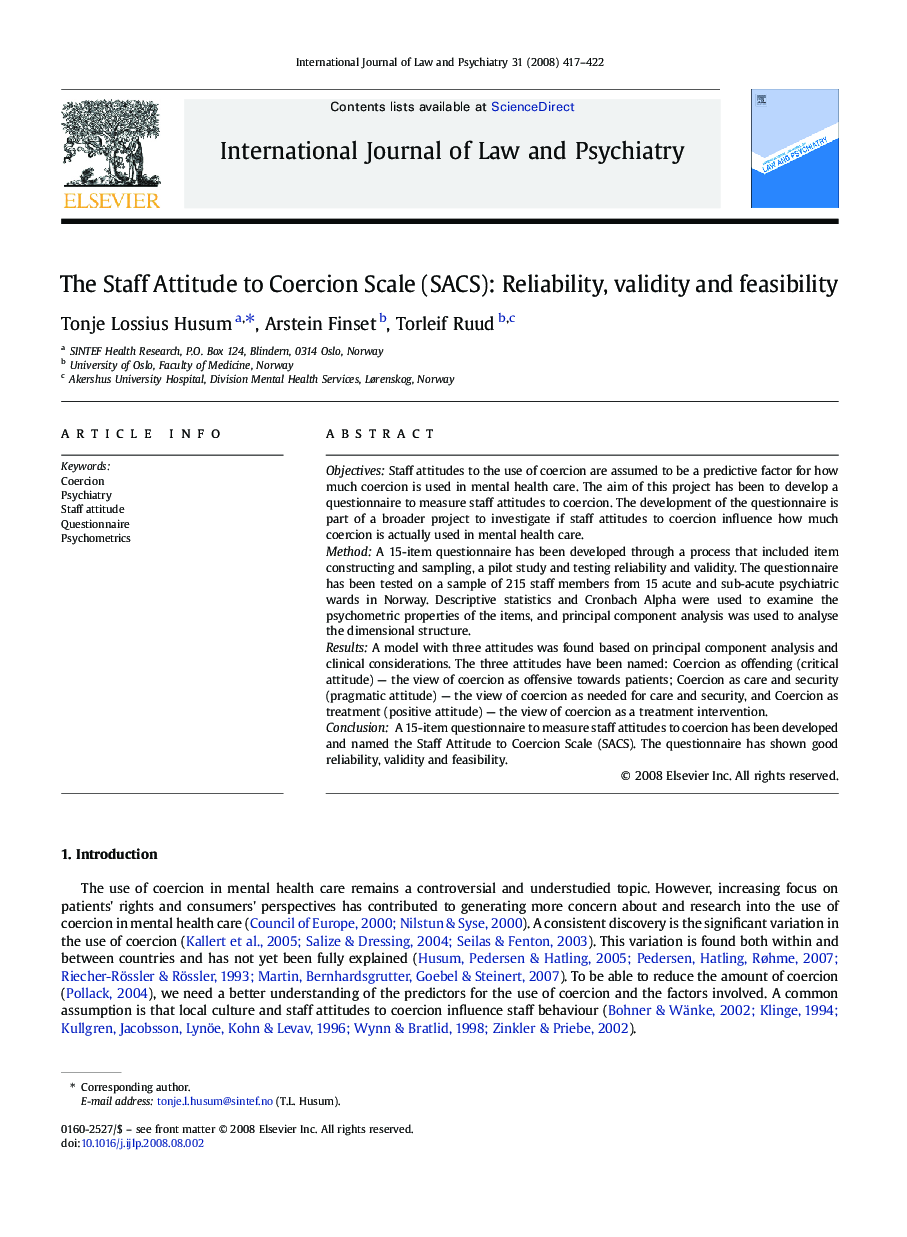| Article ID | Journal | Published Year | Pages | File Type |
|---|---|---|---|---|
| 101201 | International Journal of Law and Psychiatry | 2008 | 6 Pages |
ObjectivesStaff attitudes to the use of coercion are assumed to be a predictive factor for how much coercion is used in mental health care. The aim of this project has been to develop a questionnaire to measure staff attitudes to coercion. The development of the questionnaire is part of a broader project to investigate if staff attitudes to coercion influence how much coercion is actually used in mental health care.MethodA 15-item questionnaire has been developed through a process that included item constructing and sampling, a pilot study and testing reliability and validity. The questionnaire has been tested on a sample of 215 staff members from 15 acute and sub-acute psychiatric wards in Norway. Descriptive statistics and Cronbach Alpha were used to examine the psychometric properties of the items, and principal component analysis was used to analyse the dimensional structure.ResultsA model with three attitudes was found based on principal component analysis and clinical considerations. The three attitudes have been named: Coercion as offending (critical attitude) — the view of coercion as offensive towards patients; Coercion as care and security (pragmatic attitude) — the view of coercion as needed for care and security, and Coercion as treatment (positive attitude) — the view of coercion as a treatment intervention.ConclusionA 15-item questionnaire to measure staff attitudes to coercion has been developed and named the Staff Attitude to Coercion Scale (SACS). The questionnaire has shown good reliability, validity and feasibility.
